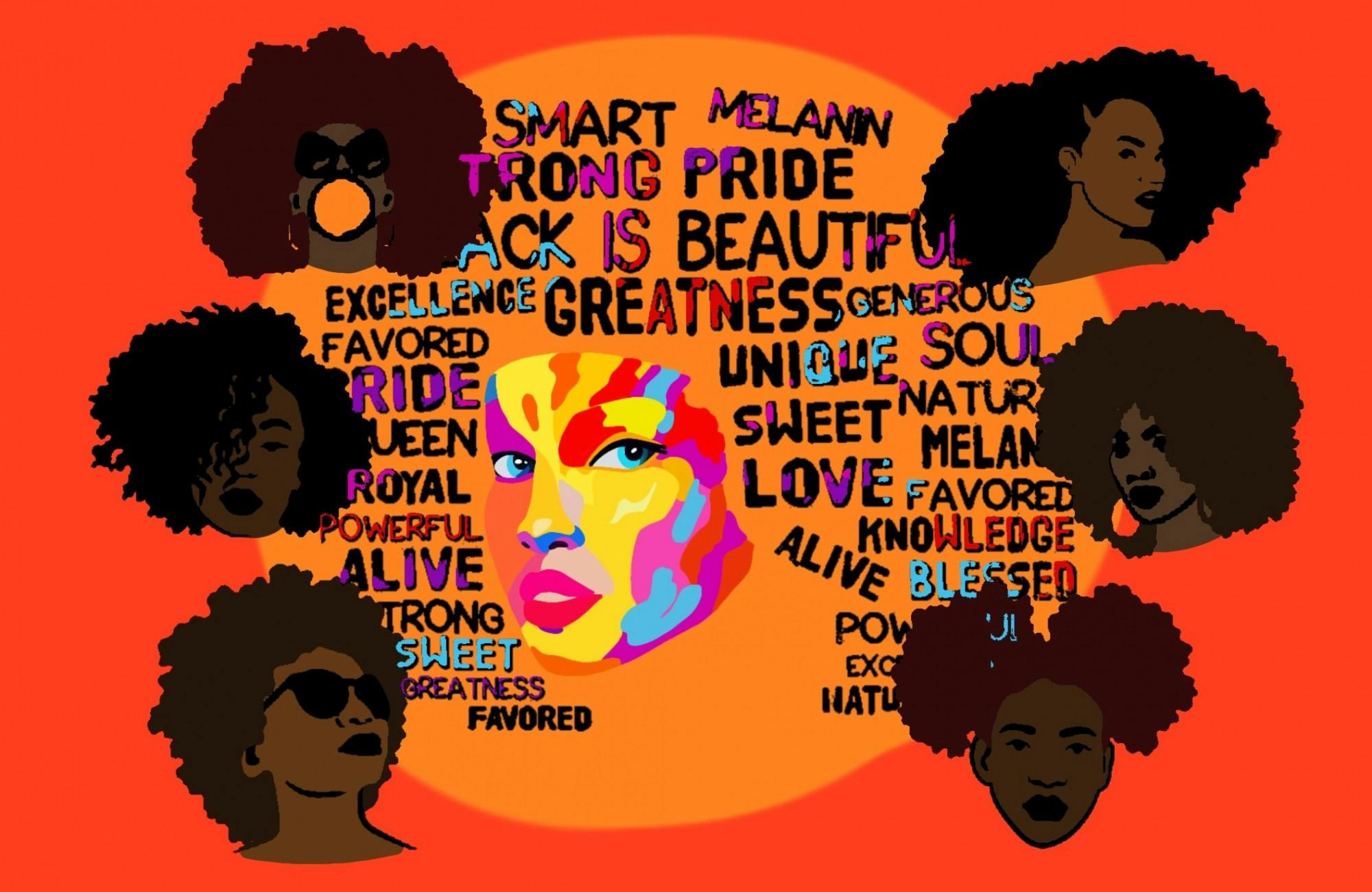When you're a Black woman in America, you face innumerable challenges. Those challenges can come from within, from your peers, from society and sometimes from family. There are so many things that factor into a person's self-consciousness, and it can come down to something as symbolic as hair.
Michigan State Information Science sophomore Jew-El Jones said that she had been natural her whole life but began to switch her hair up when she was in a charter school.
"We always have to be conscious of how we look, how we talk to be in professional spaces," said Jones. "When I went out into the business world, that is when I started to feel the pressure of having to have a certain type of hairstyle to be taken seriously."
The propagated idea that Black women must relax their hair, straighten or wear weaves to look aesthetically pleasing is disrespectful. Although many Black women decide to do some of those things, it is more of a want than a need. The misconception that Black people's hair is "unmanageable" or "nappy" is a harsh stereotype fueled by misunderstandings from those who are either unaware or misguided.
Neuroscience senior Jada Archer stated that she had started to dye, straighten and sometimes highlight her 3C hair as early as elementary school.
"When I did wear it naturally, I would get picked on a lot on the bus ride," Archer said. "I remember people putting wrappers in my hair. It wasn't until I got to college and was surrounded by more Black people that I learned that I love my hair."
Women in the Black community have different textures and styles of hair. Over the years, there have been times when conservative institutions have put rules and regulations to stop the expression of Black people's hair culture.
It was not until now, as of 2022, that the House passed the CROWN Act, which is a law that prohibits discrimination based on hairstyle and texture, and though the House has passed the act, the bill now needs approval from the Senate.
"Growing up, I used to wear my hair straight all the time. I actually started wearing it naturally consistently until maybe my freshman year of college," Genomics & Molecular Genetics senior Micahya Barkley said. "I think that it's long overdue, that something like this has been passed, you know, just to have it in writing.
Being born and raised in Detroit, Michigan, there would be times when I would see people tease Black women about the texture of their hair, the length of the hair and even their hairstyle, so my hair had become one of my biggest insecurities. It had discouraged me from accepting my natural beauty. I had grasped on to the idealistic qualities instead. I didn't realize that until I was 18 years old as I entered college.
I admit that "losing myself" was already something that I was afraid of coming to campus. I had seen it happen multiple times and had talks with friends who experienced identity crises. It was hard coming from a city like Detroit to a university like Michigan State. There was a bit of a culture shock. There were people with diverse backgrounds and styles on-campus, but it wasn't until I got to college that I understood what it meant to express my love for myself and my culture. It was the most ironic thing ever. Being a Black girl surrounded by so much diversity pushed me to admire and cherish my natural 4A hair that I had tried to get rid of for years.
I remember October of 2019; I wanted to reverse all the damage to my hair. I wanted to start my hair journey off the right way, so I had decided to do a "big chop" and cut every piece of processed hair off my head.
While cutting my hair, there was a sense of fear. It just so happened that the scissors I had decided to cut with were dull, and the dorm I stayed in had horrible lighting. Despite the odds, I was determined to get the job done and overcome the fear of what others thought about my hair. It was up to me to determine what I wanted to express and communicate through my hair. It was up to me to be radiant, accepting my happiness by discontinuing to comply with the conformity built by today's society.
Before understanding that my hair was a part of me, not what defined me, I had allowed irrelevant opinions to cloud my judgment and idea of what it was like to have "healthy hair."
After cutting my hair, I remember thinking, "I wish I had done this sooner." Chopping my hair off lifted an enormous weight from my shoulders. I had embraced that. I cried tears of joy because the experience was dramatic yet liberating. I did not think about what anyone would think of me if someone accepted me or even if someone cared about my physical appearance.
Now that I am 20 years old, I know my hair's emotional significance rather than being looked at as an "object." I am proud to be a Black woman with curls, and if I choose to wear my hair in an afro, in braids, weave, wrap, etc, it will not be a decision forced upon me by American society. It will be a decision made by me because a lot of self-loving occurred, and there will be a continuation of that because beauty is in the eye of the beholder.
"Just do whatever you want with your hair, ladies," Barkley said. "Don't think about what nobody else has to say."
Support student media!
Please consider donating to The State News and help fund the future of journalism.
Discussion
Share and discuss “COLUMN: To live with Black hair; MSU students share their natural hair experience” on social media.







